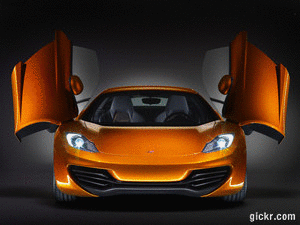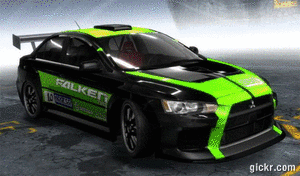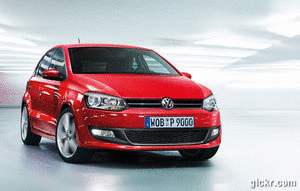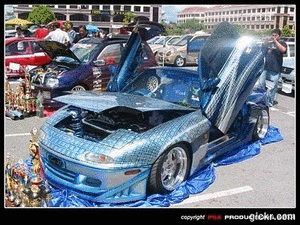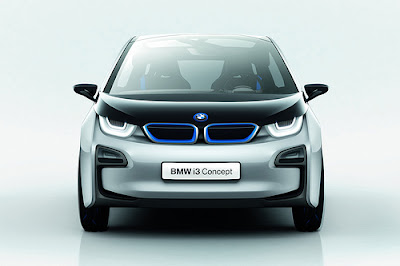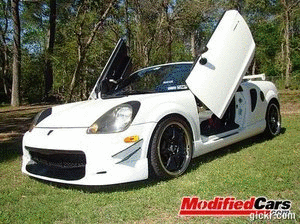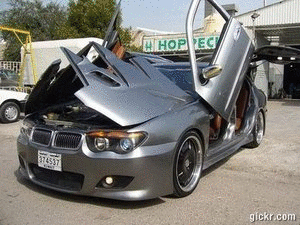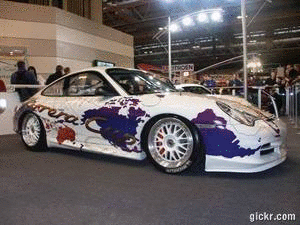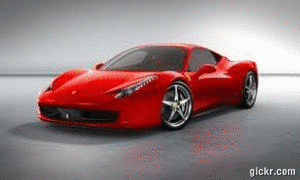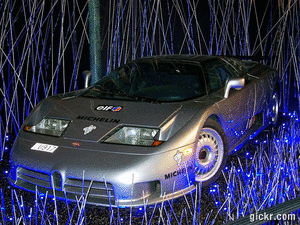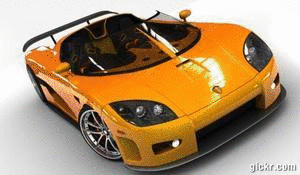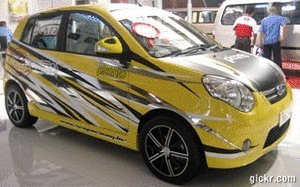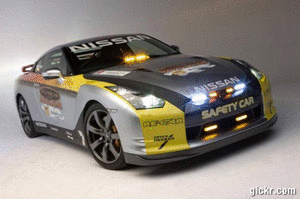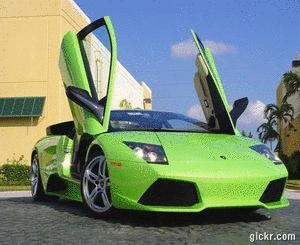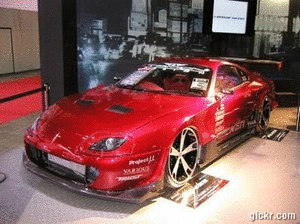|
|---|
Showing posts with label Battery Electric Car. Show all posts
Showing posts with label Battery Electric Car. Show all posts
Sunday, August 7, 2011
Nissan LEAF battery technology Explained [video]
Nissan Corporate Vice-President Simon Sproule gives a detailed explanation about the Nissan LEAF battery technology.
Labels:
Battery Electric Car,
Battery News,
Electric Cars,
EV,
Leaf,
Nissan
Saturday, August 6, 2011
Toyota shooting for Nurburgring EV Lap record on August 29
Toyota has reportedly announced it will attempt to smash the existing electric vehicle lap record at the famed Nürburgring Nordschleife on August 29.
The current electric vehicle lap record at the 'Ring stands at 9 minutes and 1.338 seconds, a time that Toyota says it has already beaten during informal testing. On August 29, Toyota will hit the track with a battery-powered two-seater that soars to a claimed top speed of 162 miles per hours, rips from 0-60 mph in 3.9 seconds and is loosely based on the radical Alpha-1 SRF, a vehicle developed by Toyota Motorsport GmbH for German firm e-Wolf.
Rob Leupen, Toyota Motorsport's director of business operations, told the Charging Point, "We are extremely confident we can break the record by some distance, which is an indication of how electric vehicle performance is continuously improving." Only time we tell if Toyota's attempt to tame the 'Ring blows a hole through the existing record, which is held by the spectalur Peugeot EX1.
Source: The Charging Point
Labels:
Battery Electric Car,
Motorsport,
Toyota
Friday, August 5, 2011
Toyota and Tesla to Build RAV4 EV in Ontario Canada
Toyota and Tesla Motors confirmed today that their jointly-developed RAV4 electric vehicle will be built at Toyota Motor Manufacturing Canada in Woodstock, Ontario beginning in 2012.
“The Tesla-Toyota joint development team has agreed that building the vehicle at the Woodstock plant on the same line as the gasoline-powered RAV4, will streamline and simplify the production process and guarantee the highest level of quality control,” said Ray Tanguay, TMMC Chairman, who hosted Canadian officials at the plant today and thanked them for their support. “This is a great example of Toyota’s determination to collaborate with companies with leading edge technology.”
As previously announced, Toyota will pay Tesla approximately $100 million to supply the electric powertrain, which includes the battery, motor, gear box and power electronics for the RAV4 EV. Tesla will build the electric powertrains at its production facility in Palo Alto, California and then ship them to TMMC for final assembly into the vehicle.
The RAV4 EV will be sold at U.S. Toyota dealers through Toyota Motor Sales, U.S.A., Inc. (TMS). Details including pricing, volume and regional distribution will be determined and announced at a later time.
In July of last year, Tesla and Toyota Engineering and Manufacturing, America (TEMA) collaborated to convert 32 conventional gas-engine RAV4 compact SUVs into fully functional RAV4 EV prototypes.
Labels:
Battery Electric Car,
Tesla,
Toyota
Transit Connect Electric Vans enter Oxford to London Eco Rally
Two Transit Connect Electric vans have successfully completed a 75-mile route from Oxford to London in a convoy of electric, hybrid and low-emission vehicles, as part of the 2011 Bridgestone Eco Rally.
The rally took place on Sunday 31st July, this year starting from Broad Street, Oxford and finishing in the UK's largest sustainable transport exhibition at The Mall in London.
The convoy comprised more than 30 of the latest low and zero emission vehicles including cars, motorbikes, vans, trucks and taxis.
Graham Hoare, executive director powertrain engineering, Ford of Europe, said: "Ford is developing a portfolio of electric vehicles that offer customers affordable, environmentally friendly technologies in vehicles they want and value. The Bridgestone Eco-Rally is a great opportunity to showcase the first of these vehicles to go on sale, the Transit Connect Electric."
The Transit Connect Electric, developed in conjunction with Ford's electric vehicles partner, Azure Dynamics, is the first of five electrified Ford models to be made available in Europe. It is a pure electric-powered version of the award-winning Transit Connect light commercial vehicle. It has a proprietary Force Drive™ battery electric drivetrain powered by an advanced battery pack from Johnson Controls, carrying a range of up to 80 miles with a payload of up to 500kg.
Ford has committed to introduce five full-electric and hybrid models in Europe by 2013 as part of its global electrification strategy. These include the Transit Connect Electric this year, the next generation Ford Focus Electric in 2012, followed by hybrid and plug-in hybrid derivatives of the all-new C-MAX and another hybrid-electric model in 2013.
Labels:
Battery Electric Car,
Ford
Thursday, August 4, 2011
Mini E UK trials reveal ease of EV use
Almost all of the 138 participants who took part in the Mini E trials, said they’d consider buying an electric car.
These are the findings, which were published today by Mini after a yearlong field test in which 62 members of the public and 76 pool users were given Mini E's and the results collated. The findings have also highlighted that the average cost per mile came in at under 2p, the equivalent of £60 per six months charge on average.
Four out of five people said that 80 per cent of their trips could be covered by the Mini E, rising to 90 per cent of trips with the addition of rear seats and a bigger boot.
Over the one-year period, over 250,000 miles were recorded on UK roads, with the average distance driven coming in at just under 30 miles per day. Interestingly, virtually all the car’s recharging took place at home at an average of 2.9 times per week.
The results also found that a full charge enabled the Mini E to travel a distance of 90 miles, although cold weather affected its range, according to 84 per cent of owners.
Driver enjoyment was a big factor noted by the results, too. With its 201bhp power figure, all participants agreed that “electric vehicles are fun to drive,” thanks in part to the car’s fast pick-up and quick accelaration”.
Finally, the findings have revealed that only one week was needed by people to adapt to the peculiarities of driving an EV, including charging, regenerative braking and near silence during driving.
The test results will be used to help develop the all-new BMW i3 - an electric city car due in 2013 – as well as the 2011 BMW ActiveE, a four-seater based on the current 1-series.
Labels:
Battery Electric Car,
Bmw
Wednesday, August 3, 2011
Nissan says electric car can power family home [video]
Nissan's Leaf electric car can feed power from its battery back into a family home and run appliances for up to two days under a new project the Japanese car-maker unveiled Tuesday.
Using the "Leaf to Home" system, the lithium-ion batteries of the zero tailpipe emission Leaf can be used as an emergency power backup for the home during a natural disaster or a power blackout, Nissan said.
Nissan, 44 percent owned by Renault of France, said it aims to commercialize the technology in Japan by March 2012.
The system works by linking the car via a quick charging port to the house's electricity distribution panel. Power can also be fed the other way if the house generates its own electricity with rooftop solar panels.
The Leaf batteries have a capacity of 24 kilowatt hours when fully charged, equivalent to the electricity used by the average Japanese household in two days, said the company.
The output from the vehicle comes to six kilowatts, enough to power electricity-guzzling appliances such as a refrigerator, air conditioner and washing machine at the same time, the company said.
Nissan says as well as its potential use in blackouts, the car can be charged during night time off-peak hours and the electricity used by households during high-demand periods.
Labels:
Battery Electric Car,
Nissan
How It Works: The All-Electric Ford Focus [video]
Ford have released a short video animation of The Focus Electric. The car runs exclusively on a 23 kWh battery, which means it never needs a drop of gas.
- Powered by a 23 kwh high-voltage, lightweight lithium-ion battery system.
- Regenerative Braking captures energy during braking and recycles it to recharge the battery.
- Charges with the available 240-volt charging station or standard 120-volt convenience cord
Labels:
Battery Electric Car,
Ford,
TV
Tuesday, August 2, 2011
Electric Raceabout In-Car Lap of the Nürburgring [video]
Electric Raceabout have posted a video on You tube of their all wheel drive EV prototype setting a time around the Nürburgring.
Developed by the Helsinki Metropolia University of Applied Sciences, the Raceabout features a carbon fiber monocoque chassis and four electric motors which are fed by a 32 kWh lithium-titanate battery. This setup gives the car an output of 272 PS (200 kW / 268 hp) and 1,000 Nm (737 lb-ft) of torque, which enables it to accelerate from 0-100 km/h in six seconds and hit a top speed of 200 km/h (124 mph).
Labels:
Battery Electric Car,
EV Concept,
TV
Nissan claims electric car was not given fair chance by Top Gear
Nissan has slammed BBC show Top Gear for its unflattering and, it claims, 'unfair' review of its new electric car. The motor company insists its Nissan Leaf electric car was not given a fair chance in Sunday's episode, when it was shown breaking down after running out of juice in Lincolnshire. This left presenter Jeremy Clarkson 'stranded' and co-host James May having to get out and push.
Nissan has accused Top Gear of misleading viewers by deliberately running down the battery, and says a monitoring system installed on the car can prove it. The telematics device showed the battery was at 40 percent when Clarkson set off on his journey. But Nissan says the car was fully charged when it handed it to the BBC with enough power to go 100 miles and not the mere 30 it lasted.
Its executive vice-president, Andy Palmer, told the Times that it appeared the car had been driven in loops for more than 10 miles around Lincoln to flatten the battery.
But the BBC has denied that Sunday night's episode misled viewers. "The point of the film was to show how bad the charging infrastructure is in the UK. The car needed to run out of charge so that it could be demonstrated," a spokesperson told The Times.
Labels:
Battery Electric Car,
Nissan
Tesla Model S Alpha track testing [video]
From enhancing performance and tuning the suspension to quieting the interior and optimizing efficiency, Tesla engineers are applying knowledge gained from Alpha testing as they begin building Beta vehicles. Get a sneak peek at the first footage of multiple Model S Alpha sedans having fun together on the track.
Labels:
Battery Electric Car,
Tesla,
TV
Fully Charged | Top Gear | Eco Rally | episode 27 [video]
A run down of recent events and a brief report form this years ECO rally.
Labels:
Battery Electric Car,
TV
Friday, July 29, 2011
The BMW i3 EV Concept & i8 Hybrid Concept [video]
More promotional video of the i3 EV Concept & i8 Hybrid Concept provided by BMW.
Labels:
Battery Electric Car,
Bmw,
Hybrid,
TV
BMW i3 Concept: First Look
BMW has finally given us our first official, undisguised look at its futuristic, all-electric city car. For now the i3 is still labeled a concept, but this car is much more complete than the MegaCity concept that preceded it. The four-passenger i3 concept is perhaps the most advanced take on electric cars yet, and draws on BMW's experience with a fleet of 600 Mini E and 1000 BMW ActiveE electric cars. Unlike those cars, however, which were traditional cars converted to electric drive, the i3 was developed from the ground up to accommodate electric propulsion.
The i3 is built around a new chassis concept called LifeDrive, which divides the vehicle into sections for Life, the passenger compartment, and Drive, the powertrain and battery. For the i3, the bottom half of the car is the Drive section, and is made mostly of lightweight aluminum; the Life passenger compartment sits on top and is built from carbon-fiber reinforced plastic (CFRP). Employing these lightweight materials keeps the i3's weight down to just 2750 pounds. The Nissan Leaf, for comparison, tips the scales at 3366 pounds.
BMW says that CFRP is as strong as but 50 percent lighter than steel. The entire Life CFRP shell weighs less than 220 pounds. Better yet, it never rusts and reportedly offers better protection than steel in a crash. CFRP only forms the Life sections' shell, however, as replaceable plastic panels form the i3's true bodywork. The Life section slots on top of the Drive chassis and is attached with strong adhesives and four bolts.
The i3's electric motor was developed by BMW because the company wanted tight control over the feel and performance of its powertrains. It is said to be 40 percent smaller than the similar motor used in the Mini E. It is rated at 170 hp and 184 lb-ft of torque, and has a single-speed transmission. The motor is located directly above the rear axle, making the i3 a rear-wheel-drive vehicle and also keeping the front-rear weight balance even.
The motor is fed by a liquid-cooled lithium-ion battery pack that is mounted under the floor of the passenger compartment. This means there is no intrusion or transmission tunnel in the cabin, and also helps keep the i3's center of gravity low for better handling and stability. BMW wouldn't specify the battery's storage capacity.
Though the maximum range per charge is rated at 140 miles, BMW admits real-world i3 mileage will be between 80 and 100 miles -- approximately on par with the range offered by the Nissan Leaf. Data from the Mini E trials taught BMW that a battery range of 74 to 93 miles would satisfy 90 percent of all drivers. The i3 concept can reach 62 mph in 7.9 seconds, and its top speed is limited to 93 mph because BMW says higher velocities would drain the battery too quickly.
A full charge is said to take just six hours via a standard European outlet, while an optional fast-charger yields an 80-percent charge in just one hour. Charge times on American 120-volt outlets will likely be longer.
i3 Concept. The electric motor of the BMW i3 Concept is designed primarily for operation in an urban environment. Already tested in a pre-production version in the BMW ActiveE, the version of this permanently excited hybrid synchronous motor which will be used in the BMW i3 Concept has undergone further optimization in terms of weight and driveability.
A single-speed gearbox accelerates the BMW i3 Concept to an electronically governed 150 km/h (93 mph). The BMW i3 Concept accomplishes 0-60 km/h (37 mph) in less than four seconds and 0-100 km/h (62 mph) in under eight seconds. The motor is located directly above the drive axle, for optimal and typical BMW rear-wheel-drive handling characteristics.
With the dual accelerator/decelerator function of the accelerator pedal approximately 75% of all braking operations around town can be performed by energy recuperation which generates a braking effect, BMW says. Intensive use of this energy recuperation function of the electric motor can increase the driving range by up to 20 per cent. Only when the driver’s braking request exceeds a given level is the conventional brake system of the BMW i3 Concept engaged as well.
A coasting facility makes this single-pedal control of acceleration and braking using just the accelerator even more user-friendly. The BMW i3 Concept features a distinct “neutral” position of the accelerator pedal—i.e. rather than switching straight to recuperation when the driver eases off the pedal, the electric motor’s zero torque control keeps the drive train disconnected as long as the pedal is in this position. The vehicle now coasts without consuming power, driven by its own kinetic energy. Used as part of a proactive driving style, this coasting mode is a way to increase the driving range even further.
BMW developed the motor and power electronics for the i3 Concept entirely in-house. The space requirements of the electric motor used in the BMW i3 Concept have been reduced by 40% compared with the motor used in the MINI E. This compact drive unit is mounted over the rear axle, together with the power electronics, transmission and differential, causing no loss of interior space.
The BMW i3 Concept’s battery system has also undergone detailed optimization which reduces the extent to which external factors can influence the vehicle’s power and driving range. An integrated liquid cooling system keeps the battery at its optimal operating temperature at all times, helping to boost the performance and life expectancy of the cells. The climate/heating system cools the fluid circulating in the battery housing via a heat exchanger.
If necessary, in winter, this fluid can also be heated in order to bring the battery up to its optimal operating temperature of around 20 °C. The battery can be fully recharged in six hours at a standard power socket. If a high-speed charger is used, an 80% charge can be achieved in just one hour.
Optional range extender. The BMW i3 Concept offers an optional Range Extender, the REx, which allows the electric driving range to be increased. REx, a small gasoline engine, drives a generator which maintains the battery charge level and therefore extends the range of the electric motor. As soon as the battery charge reaches a critical level, REx supplies the necessary energy to get the driver the rest of the way to the destination.
The compact size of the electric motor used in the BMW i3 Concept means there is room left over to accommodate REx and its attached generator over the rear axle, alongside the drive components. The gasoline engine complies with the SULEV standard. To reduce fuel consumption to a minimum, REx also features such functions as Automatic Start-Stop and other intelligent operating strategies.
Labels:
Battery Electric Car,
Bmw,
EV Concept
BMW Shows Off Electric Concept Cars [video]
BMW AG on Friday presented two concept cars for the first generation of electric vehicles to be launched under its new sub-brand i starting in 2013, and said it will invest in a company named Parkatmyhouse, which offers a service to rent out private parking space via Internet or smart-phone application.
The upcoming i3 “will mark the launch of the first volume-produced car featuring bodywork largely made of carbon,” BMW research and development chief Klaus Draeger said during a presentation in Frankfurt.
BMW didn’t elaborate on the expected annual sales volume, but Chief Financial Officer Friedrich Eichiner noted that in terms of earnings per vehicle the new cars will contribute to the company’s targeted earnings before interest and taxes margin range of between 8% and 10%. Making electric cars economically viable despite expensive components such as the battery is a key challenge for the global auto industry.
The world’s largest luxury-car maker by sales volume will initially launch two new vehicles under the new sub-brand, the BMW i3 and the BMW i8, which will be launched in 2013 and 2014, respectively, and built at BMW’s German plant in Leipzig. The i3 will be a purely electric powered car for urban areas. The i8 will be based on the plug-in hybrid sportscar concept BMW Vision EfficientDynamics.
The new sub-brand is the outcome of BMW’s Project i, a task force established in 2007 to explore future mobility concepts and one of the Munich-based firm’s most important think tanks. It is a cornerstone of BMW’s plan to expand in the field of alternative drivetrains and green technology, making cars more environmentally friendly to comply with tightening emission regulations world-wide.
In November, BMW said it will invest around €530 million and create more than 1,000 jobs, together with its joint-venture partner SGL Carbon SE, as part of its plan to launch the new megacity vehicle and start producing carbon fiber components to reduce the vehicle’s weight.
Both companies forged a U.S. joint-venture to produce carbon fiber in Moses Lake, Wash.
BMW has named SB LiMotive, a joint venture between Samsung SDI Co. Ltd. and Robert Bosch GmbH, as the battery supplier for the new car. The battery is a key component for electric vehicles as it determines the range and performance of the car.
Labels:
Battery Electric Car,
Bmw,
Hybrid,
TV
Tuesday, July 26, 2011
Fully Charged episode 26 Renault Fluence ZE [video]
An announcement about the series and a short drive in the Renault Fluence ZE
Labels:
Battery Electric Car,
TV
Electric Cars Rule Georgia Town [video]
The town of Peachtree Georgia has been adapted to cater for electric golf carts.
With 90 miles of purpose built pathways, almost every family in this town of 34,000 owns a golf cart for local commuting. There are approx 10,000 electric golf carts in Peachtree displacing the more typical family mode of transport in the US, the gas guzzling SUV or Minivan.
Peachtree, a suburb of Atlanta, is only a short distance from Augusta Georgia which is home to two of the largest Electric Golf Cart manufacturers in the USA, Club Car and E-Z-Go.
Labels:
Battery Electric Car,
EV Concept
Friday, July 22, 2011
Nissan to invest $68M to add Leaf motor production to US plant [video]
Nissan Americas today confirmed that, starting in early 2013, it will produce the electric motor for the Nissan LEAF at its Decherd, Tenn., powertrain assembly plant.
Preparation of the plant for electric motor production, facilitated by U.S. Department of Energy Advanced Technology Vehicles Manufacturing Incentive Program loan funds, will include addition of a new assembly line and will create up to 90 new jobs.
When the new assembly line is completed, the plant will have the capacity to produce up to 150,000 electric motors annually for Nissan LEAFs, which will be built at the company's assembly plant in Smyrna, Tenn.
"Nissan's Tennessee operations are paving the way to a zero-emission future for everyone," said Bill Krueger, vice chairman of Nissan Americas. "By delivering motors for the first mass-produced electric vehicles manufactured in the United States, our Decherd plant will play a vital role in making zero-emission mobility a reality for American consumers."
The work to support the electric motor assembly line represents the fifth addition to Nissan's Decherd operations, which began production in 1997. The new assembly line will be located within the existing facility using 100,000 sq.-ft. of available floor space, and will feature highly automated, state-of-the-art equipment including wire winding machines, magnetization and magnet insertion equipment, varnishing and hot press equipment and test equipment.
Today, the 1.2 million sq.-ft. Decherd plant produces engines and components for Nissan vehicles built in North America, and also houses engine casting and forging operations. The plant currently has the capacity to produce 950,000 engines, 1.1 million crankshaft forgings and 192,000 cylinder-block castings annually.
Nissan will produce the Nissan LEAF and the batteries that power it at its Smyrna manufacturing complex. The advanced, lithium-ion battery plant is on track to be operational late next year at approximately the same time LEAF production is targeted to begin in Smyrna.
Labels:
Battery Electric Car,
Nissan,
TV
Autocar drives the Nissan Leaf Nismo RC [video]
Autocar's Colin Goodwin had the rare opportunity to test drive the Nissan Leaf Nismo RC prototype racer around "Britain's fastest racing circuit" Goodwood.
However, Autocar's selection of a test driver who starts complaining the moment he gets in the car and who is a fan of "piston engines" spoils the video.
Labels:
Battery Electric Car,
Nissan,
TV
Tuesday, July 19, 2011
Toyota RAV4 EV Coming to Market in 2012
Recent reports have incorrectly stated that the 2012 RAV4 EV will only be marketed to fleet and car sharing programs. We’d like to set the record straight. The 2012 RAV4 EV will definitely be sold to the general public. We anticipate robust public interest in the RAV4 EV and are keen to inform consumers that their future vehicle options include a battery electric Toyota.
Toyota is the only manufacturer bringing two battery electric vehicles to the market in 2012 - the RAV4 EV and the Scion iQ EV. While the RAV4 EV will be available to the public, the Scion iQ EV will be marketed to fleet and car sharing programs only.
Multiple reports have been corrected on various automotive blog sites
Toyota
Labels:
Battery Electric Car,
Tesla,
Toyota
2012 Nissan Leaf upgraded for America
Nissan North America Inc. is expanding availability of the all-electric Nissan LEAF to U.S. consumers for the 2012 model year, with upgrades based on feedback from the thousands of owners who already have driven several millions of miles in the first 100-percent electric car for the mass market.
The Nissan LEAF, enriched with additional standard equipment including quick charging and cold-weather features for the 2012 model year, now will be available for order in the Southeastern United States and Illinois.
"Many enthusiastic consumers have eagerly anticipated ordering a Nissan LEAF of their own, and now we can make zero-emissions mobility a reality in more markets," said Brian Carolin, senior vice president, Sales and Marketing, Nissan North America. "In response to direct feedback from Nissan LEAF owners, the features that customers want most will come standard on the 2012 Nissan LEAF - including quick charging and cold-weather features."
Nissan on July 25 will open up the ordering process to consumers with existing reservations in Alabama, Florida, Georgia, Illinois, Maryland, Mississippi, North Carolina, South Carolina, Virginia and Washington, D.C.
After the prioritized ordering phase for existing reservations in those markets, Nissan on Aug. 4 will open new reservations and orders to the general public, both in these new markets, as well as places where the Nissan LEAF already has been on sale (Arizona, California, Hawaii, Oregon, Tennessee, Texas, and Washington). Expected delivery of the first 2012 Nissan LEAFs will begin in the fall.
The MY12 vehicle features product enhancements that incorporate feedback from early LEAF drivers, including standardizing the most popular options. These features include:
DC Fast Charge capability standard on Nissan LEAF SL: The vast majority of MY11 consumers have opted for the DC fast charge port, which allows the vehicle to be charged at 480V - reducing charging time to under 30 minutes for charging the vehicle to 80 percent from a fully depleted state. As DC fast charge stations proliferate across the country, Nissan expects this feature to become even more popular. For 2012, fast-charging capability will be standard on the SL trim level.
Cold weather features standard on Nissan LEAF: As the Nissan LEAF rolls out to U.S. markets with colder climates, cold weather features become standard equipment on all trim levels of the Nissan LEAF. These include a battery warmer, heated steering wheel, and heated seats in both the front and rear.
The manufacturer's suggested retail price of the 2012 Nissan LEAF is $35,200 for the SV trim level, and $37,250 for the SL trim level. The monthly lease price will begin at a highly competitive $369.
Nissan will expand into additional new markets as the year continues. In the fall, orders from existing reservations and new reservations will begin in Connecticut, Colorado, Massachusetts, New Jersey and New York. By the end of the year, Delaware, Indiana, Louisiana, Nevada, Ohio, Pennsylvania, and Rhode Island will be added as markets where the Nissan LEAF will be available for order.
More than 4,000 Nissan LEAFs have been delivered to U.S. customers, and Nissan, as it begins the next phase of the launch, continues to learn from them. While 82 percent have never previously owned a Nissan, a full 75 percent considered no other vehicle than the Nissan LEAF in their purchase decision. On a whole, these early adopters report that they are using the Nissan LEAF as their primary car, and driving it far more than was originally anticipated. These consumers, most of whom are highly educated and have high income levels, are technologically savvy, environmentally conscious, and consider themselves advocates for electric-car technology.
Labels:
Battery Electric Car,
Nissan
Subscribe to:
Posts (Atom)
